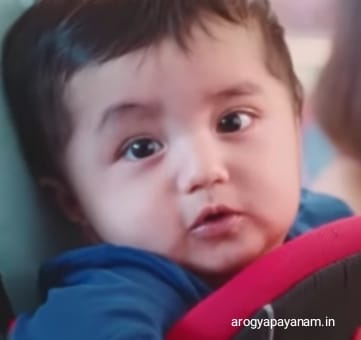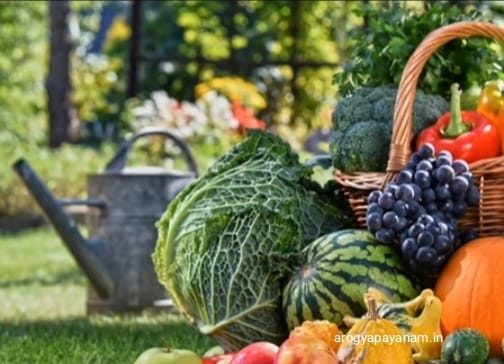பழமொழிகள் தமிழ் விளக்கம்-தமிழ் பழமொழிகள் விளக்கம்-Proverb in english and tamil-Proverbs in tamil-proverbs meaning in tamil

பழமொழிகள் தமிழ் விளக்கம்- Proverb in english and tamil-proverbs meaning in tamil
- வீட்டையும் நிலத்தையும் விடக் கற்பது மேல் , கல்வியே சிறந்த செல்வம். (Learning is better than house and land)
- இளமையிற கல் நேர்மையைக் கல். (Learn young learn fair)
- உன் தவறுகளிலிருந்து நீ கற்றுக்கொள். (Learn from your mistakes)
- கல்லாதவன் எதையும் தெரிந்து கொள்ளாதவன். (Learn not and know not)
- கல்வி மனிதனைத் தனக்கே தகுந்த தோழனாக்கும். (Learning makes a man fit companion for himself)
- கற்பதற்கு வயது கிடையாது. (It is never too late to learn)
- கற்பிக்கும் போதே கற்கிறார்கள். (Even while they teach they learn)
- கற்றல் மனத்தைத் தூய்மைப்படுத்தி உயர்த்தி விடும். (Learning refines and elevates the mind)
- கற்றவன் அதை விட்டுவிட அல்லல்படுவான். (He who has learned unlearns with difficulty)
- கேள்விகள் கேட்பவனே படிப்பாளி ஆகிறான். (A man becomes learned by asking questions)
- துன்பப்படாமலும் அவமானப்படாமலும் எவரும் கற்க முடியாது. (No man learns but by pain or shame)
- தோற்பதால் கற்கிறோம். (One learns by failing)
- நல்லது செய்யும் ஊதாரித்தனத்தைக் கற்றுக் கொள். (Learn the luxury of doing good)
- நன்மையில்லாததைச் செய்ய கற்காதே. (Do not learn to do that from which there is no advantage)
- படிப்பாளி எப்போதும் தன்னுள்ளே செல்வத்தைக் குவிப்பான். (The learned man has always riches in himself)
- மற்றவர் அனுபவத்தில் கற்பது நன்று. (It is good to learn at other men cost)
- மற்றவர் அனுபவத்தில் கற்பது நன்று. (It is good to learn at other men cost)
- விரைவில் கற்றது விரைவில் மறக்கும். (Soon learnt soon forgotten)
- கல் மனம் போல் பொல்லாப்பில்லை கற்ற மனம்போல் நற்பேறில்லை. (Nothing so much worth as a mind well educated)
- கல்விக்கு ராசபாட்டை கிடையாது (வருதப்பட்டால் தான் கற்க முடியும்). (There is no royal road to learning)
- கல்வியால் பரவும் நாகரிகம். (Education is the transmission of civilization)
- கல்வியே நாட்டின் முதல் அரண். (Education is the chief defense of a nation)
- கற்காதவன் அறியாதவன். (Learn not and know not)
- கற்கையில் கசப்பு கற்றபின் இனிப்பு. (Knowledge has bitter roots but sweet fruits)
- கற்பதற்கு வயதில்லை(கால எல்லை இல்லை). (Never too late to learn)
- தீய பண்பைத் திருத்திடும் கல்வி நல்ல பண்பைப் பொலிவுறச் செய்யும். (Education polishes good nature and corrects bad ones)
- (i) கடவுள் விரும்பியபடியே அனைவரும் இருப்பர் (ii) கடவுள் விருப்பப்படியே இங்கு மானிட வாழ்வு. (All must be as God wills)
- இயன்றதைச் செய்தால் கடவுளட மிகச் சிறந்ததைச் செய்வார். (Do the likeliest and God will do the best)
- கடவுளுக்கு தொண்டு புரிபவனே சிறந்த எசமானனுக்குத் தொண்டு புரிகிறான். (He who serves God serves a good master)
- கடவுளை நம்பினோர் கைவிடப்படார். (God provides for him that trusts)
- கடவுள் படைக்கிறார் மனிதன் வடிவமைக்கிறான். (God makes and man shapes)
- கடவுள் பெயரைச் சொல்லித் தொடங்கிய காரியம் கெட்டுப் போகாது. (That never ends ill which begins in Gods name)
- தமக்குத்தாமே உதவுபவருக்குக் கடவுள் உதவுகிறார். (God helps them that help themselves)
- தூரத்தில் இருக்கிறார் என்று நாம் நினைக்கும் பொழுது கடவுள் இறுதியில் வருகிறார். (God comes at last when we think He is farthest off)
- மனிதன் நினைக்கிறான் கடவுள் முடிக்கிறார். (Man proposes God disposes)
- மனிதன் முடிந்ததைச் செய்கிறான் கடவுள் விரும்பியதைச் செய்கிறார். (Man does what he can ang God what he will)
- மனிதன் விரும்புகிறான் கடவுள் முடிவு செய்கிறார். (Man desires God decides)
- i) வாலிபத்தை நன்கு ஆண்டால் வயோதிகம் தானே ஆளும் (ii) வாலிபத்தைக் கட்டுப்படுத்தினால் வயோதிகம் தானே கட்டுப்படும். (Rule youth well and age will rule itself)
- எசமான் தூங்கு மூஞ்சியானால் வேலைக்காரன் மட்டி. (A sleepy master makes his servant a lout)
- சிறு தவறுகளைத் திருத்திக்கொள்ளாவிடடால் பெறுந்தவறுகளைத் தவிர்க்க முடியாது. (He that corrects not small faults will not control great ones)
- தன்னைக் கண்டித்துத் கொள்பவன் மகிழ்ச்சியில் திளைப்பான். (Happy is he that chastens himself)
- பரிசுகளும் தண்டனைகளும் பாதுகாப்பு அரண்கள். (Rewards and punishments are the walls of a city)
- முரட்டுக் குதிரைக்கு வலுத்த கடிவாளம். (A boisterous horse must have a rough bridle)
- உண்மை வெற்றி உழைப்பிற்கே. (The true success is to labour)
- உழைக்கக் கற்போம் காத்திருக்கவும் கற்போம். (Let us learn to labour and to wait)
- உழைப்பே அனைத்தையும் வெல்லும். (Labour conquers everything)
- உழைப்பே வழிபாடு (ஆராதனை). (Labour is worship)
- உழைப்பைத் துருப்பிடிக்க வைக்காதே. (Spare not your labour)
- i) உடல்நலமே மகிழ்ச்சி (ii) ஆரோக்கியமே ஆனந்தம். (Health is happiness)
- (i) நலவாழ்வே நற்செல்வம் (ii) உடல்நலம் உயர் செல்வம் (இ) நோயற்ற வாழ்வே குறைவற்ற செல்வம். (Health is wealth)
- (i) நோய்வரும் வரை நலத்தில் அக்கறை செலுத்துவதில்லை (ii) நோய் வராதவரை உடல் நலத்திற்கு மதிப்பில்லை. (Health is not valued till sickness comes)
- ஆரோக்கியம் இல்லா வாழ்க்கை பாழ். (Without health life is not life life is useless)
- உடல்நலத்துடன் இருக்கையிலேயே நோய் பற்றிப் படி. (Study sickness while you are well)
- உடல்நலமும் உற்சாகமும் ஒன்றை ஒன்று பெற்றுத்தரும். (Health and cheerfulness mutually beget each other)
- உடல்நலமும் புரிந்துகொள்தலும் வாழ்கையின் இரு பெரும் பேறுகள். (Health and understanding are two great blessings of life)
- நேரத்தே எழுந்து காலத்தே உண்டு நேரத்தே உறங்கினால் நூறாண்டு வாழலாம். (To rise at five dine at nine sup at five go to bed a nine makes a man live to ninety nine)
- நொறுங்கத் தின்பவன் நூறாண்டு வாழ்வான். (He who masticates well lives up to a hundred full)
- வலிமை வாய்ந்த தலை ஒருபோதும் வலிக்காது. (It is a hardened head that never ached)
- அனுபவமே அருமையான ஆசான். (Experience is the best teacher)
- அனுபவமே அறிவின் தாய். (Experience is the mother of wisdom)
- அனுபவம் பிழைகளைச் செய்தபின் மெதுவாகக் கற்பிக்கிறது. (Experience teaches slowly and at the cost of mistakes)
- கல்வியில்லாத அனுபவம் அனுபவம் இல்லாத கல்வியைவிட மேல். (Experience without learning is better than learning without experience)
- காயம் ஆறினாலும் தழும்பு நிற்கும். (Though the wound be healed yet a scar remains)
- செய்வதில் நாம் கற்கிறோம். (In doing we learn)
- மற்றவர்கள் தவறுகண்டு தான் கற்பதே நல்லது. (It is good to learn at other men cost)
- (i) செய்கை வரும் முன்னே அறிவுரை வரும் பின்னே (ii) செய்து முடித்தபின் சேர்ந்திடும் அறிவுரை. (When a thing is done advice comes too late)
- அளவுக்கு மீறி அறிவுரை கேட்டால் அதிகக் குழப்பம் அடைந்திட வேண்டும். (Too much consulting confounds)
- அறிவுரை கொடுப்பதினும் கேட்பதே நல்லது. (It is safer to hear and take counsel than to give it)
- அறிவுரை தேவைப்படும் பொழுதுதான் அலட்சியம் கண்ணை மறைக்கும். (Advice when most needed is least heeded)
- அறிவுரை நல்லதானால் யாரானாலும் கொள். (Accept if the counsel be good no matter who gave it)
- அறிவுரை போல இலவசம் வேறெது? (Nothing is given so free as advice)
- உப்பும் அறிவுரையும் கேளாமல் தராதே. (Give neither advice nor salt till you are asked for it)
- உன்னை நேசிப்பவனின் அறிவுரையை தற்போது கொள்ளாவிடினும் பிற்போது கொள்ள அதை எழுதி வைத்திடு. (write down the advice of him who loves you though you like it not at present)
- கும்பலில் அறிவுரை ஒருபோதும் கூறாதே (Never give advice in a crowd)
- நல்ல அறிவுரை கொடுப்பது எளிது அதன்படி நடப்பது அரிது. (It is hard to follow good advice than to give it)
- நல்ல அறிவுரை விலைமதிப்பற்றது. (Good counsel has no price)
- நல்ல அறிவுரைக்கு நாடிடு கிழவனை. (If you wish good advice consult an old man)
- போருக்குப் போவென்றும் திருமணம் புரியென்றும் யாருக்கும் அறிவுரை கூறாதே (Never advise anyone to go to war or marry)
- முற்றிய பிறகு பெற்ற அறிவுரை தந்திடும் வேதனை. (Counsel is irksome when the matter is past remedy)
- விவேகம் எச்சரிக்கும் அவிவேகம் செயல்படும் (While the discreet advise the fool does his business)
- அரைகுறை அறிவு ஆபத்தில் முடியும். (A little learning is a dangerous thing)
- அறிவில்லாத ஆர்வம் சுடரில்லாத நெருப்பு. (Zeal without knowledge is fire without light)
- அறிவு அனைத்து நற்பண்புகளின் தாய் அறியாமையிலிருந்து அனைத்து தீயபண்புகளும் வெளிப்படுகின்றன. (Knowledge is the mother of all virtues. All vice proceeds from ignorance)
- அறிவு ஏழைகளிடையே வெண்பொன் பிரபுக்களிடையே செம்பொன் மன்னரிடையே அணிகலன். (Knowledge is silver among the poor gold among the nobles and jewel among princes)
- அறிவு ஒரு சுமை அன்று. (Knowledge is no burden)
- அறிவு தன் விலை அறியும். (Knowledge finds its price)
- அறிவு மட்டுமே அழியா அணிகலம். (The only jewel which will not decay is knowledge)
- அறிவு வருகிறது ஆனால் ஞானம் நீடித்து நிற்கிறது. (Knowledge comes but wisdom lingers)
- அறிவே ஆற்றல். (Knowledge is power)
- அறிவே நன் மனிதனைத் தொடங்கி வைக்கிறது ஆனால் அதுவே அவனை முழுமை அடைவிக்கிறது. (Knowledge begins a gentleman but it is knowledge that completes him)
- அறிவைப் பெருக்குபவன் துயரத்தைப் பெருக்குவான். (He who increases knowledge increases sorrow)
- அனுபவமில்லாத அறிவு அரைக் கலைஞனையே உருவாக்கும். (Knowledge without practice makes but half an artist)
- ஐயமே அறிவின் திறவுகோல். (Doubt is the key of knowledge)
- ஒழுங்குபடுத்தப்பட்ட அறிவே விஞ்ஞானம். (Science is organized knowledge)
- கலையும் அறிவும் தரும் உணவும் மதிப்பும். (Art and knowledge bring bread and honor)
- நம் அறிவில் பாதியை நாம் அல்லல்பட்டு பெற வேண்டும் சுலபமாக எடுத்துக்கொள்ளக் கூடாது. (Half our knowledge we must snatch not take)
- நம்மை அறிவதே நமக்கறிவாகும். (All our knowledge is ourselves to know)
- மறைந்துள்ள அறிவுக்கும் அறியாமைக்கும் வேற்றுமை இல்லை. (Hidden knowledge differs little from ignorance)
- i) உன் அதிர்ஷ்டம் உனக்கு தெரியாது (ii) தன் அதிர்ஷ்டம் தனக்குத் தெரியாது. (You never know your luck)
- அதிர்ஷ்டக்காரனுக்கு ஆலோசனை தேவை இல்லை. (Lucky man needs no counsel)
- அதிர்ஷ்டம் கூரையைப் பிய்த்துக்கொண்டு கொடுக்கும். (Good luck reaches further than long arms)
- அதிர்ஷ்டம் வரும்போது தவறவிடாதே. (When fortune smiles embrace her)
- ஆபத்துக்கு உதவுபவனே உண்மையான நண்பன். (A friend in need is a friend indeed)
- உழைப்பின் வாரா உறுதிகள் உளவேர் (Diligence is the mother of fortune)
- ஒரு கிலோ ஞானத்தைவிட ஒரு கிராம் அதிர்ஷ்டம் மதிப்பானது. (An ounce of luck is worth a pound of wisdom)
- குபேரன் குருடன். (Fortune is blind)
- செல்வம் செல்வத்தோடு சேரும். (Fortune favours fortune)
- துரதிருச்டம் பெரும்பாலும் அதிர்ஷ்டத்தைக் கொண்டு வரும். (Bad luck often brings good luck)
- நிழலருமை வெயிலில் தெரியும். (Misfortune tells us what fortune is)
- புத்திசாலியாய்ப் பிறப்பதைவிட அதிர்ஷ்டக்காரனாய்ப் பிறப்பது மேல். (Better be born lucky than wise)
- முட்டாள் அதிர்ஷ்டம் முட்டும். (Fortune favours fools)
- யானைக்கு ஒரு காலம் பூனைக்கும் ஒரு காலம் வரும். (Every dog has his day)
- வீரனை அதிர்ஷ்டம் விரும்பிச் சேர்ந்திடும். (Fortune favours the brave)
- i) ஒவ்வொரு மந்தையிலும் கறுப்பாடு ஒன்று உண்டு (ii) ஒவ்வொரு குடும்பத்திலும் ஒழுங்கீனன் இருப்பான். (There is a black sheep in every flock)
- ஒன்றாக வழிபடும் குடும்பம் ஒரு நாளும் பிரியாது. (The family that prays together stays together)
- கோவேறு கழுதையே குடும்பத்தை மறுக்கும். (None but a mule denies his family)
- சந்ததி பயன்பெற சால விருட்சம் நடுவோம். (Walnut and pears you plant for your heirs)
- சந்தோசமான குடும்பங்கள் ஒன்றுபோல இருக்கும் சந்தோசம் இல்லாவிட்டால் வேறுவேறாய் இருக்கும். (All happy families resemble one another each unhappy family is unhappy in its ones way)
- சந்தோசமான குடும்பமே தரணியில் சொர்க்ம். (A happy family is an earlier heaven)
- சிறிய குடும்பமே செல்வக் குடும்பம். (A small family is soon provided for)
- நாட்டைவிடக் குடும்பம் புனிதமானது. (Family is more sacred than the state)
- விதி தேர்வது உறவு நாம் தேர்வது நட்பு (Fate chooses your relations you choose your friends)
- i) காக்கைக்கும் தன் குஞ்சு பொன்குஞ்சு (ii) எல்லாத் தாய்க்கும் தன் குழந்தையே அழகு. (There is only one pretty child in the world and every mother has it)
- (i) மலடிக்கு வருமா மழலைமேல் அன்பு (ii) பிள்ளை பெறாதவனுக்கு அன்பு தெரியாது. (He that has no children knows not what is love)
- அடி உதவுவது போல் அண்ணன் தம்பி உதவ மாட்டான். (Spare the rod and spoil the child)
- இன்றைய குழந்தைகள் நாளைய மனிதன். (The child is the father of man)
- எலும்புந் தோலுமாய்க் குழந்தையை வளர்க்காதே. (Let not a child sleep upon bones)
- ஒவ்வொருவரும் தன் கடந்த காலத்தின் குழந்தையே, (Everyone is the child of his past)
- குழந்தைகளைக் கேட்டறிவதிலும் பார்த்தறிவதே மேல். (Children should be seen and not heard)
- குழந்தைக்கும் முட்டாளுக்கும் பொய் சொல்லத் தெரியாது. (Children and fools cannot lie)
- குழந்தையின் மீது எதையும் திணிக்காதே அதுவாகப் பற்றம்படி அறிவு கொளுத்து. (A child is not a vase to be filled but a fire to be lit)
- குழந்தையும் கோழிக்குஞ்சும் எப்போதும் பொறுக்கும். ( Children and chicken must always be picking)
- சிறுவர்கள் எல்லாம் பெரியவர்கள் ஆவர். (Boys will be men)
- மழலைச்செல்வமே ஏழையின் செல்வம். (Children are poor mans riches)
- மனைவி வரும்வரையே மகன் வாழ்நாள் எல்லாம் மகள். (A son is a son till he gets him a wife but a daughter is a daughter all the days of her life)
- i) உரத்துக் கேட்காதவன் மறுப்பைப் பெறுவான் (ii) உரத்துக் கேட்காவிட்டால் ஊர் எதுவும் தராது. (He that asks faintly begs a denial)
- (i) வழி தவறுவதை விட வழிகேட்பது மேல் (ii) வாயுள்ள பிள்ளை வழி தேடிக் காணும். (Better to ask the way than go astray)
- (i) தட்டிக்கேட்க ஆள் இல்லாவிடில் தம்பி சண்டப் பிரசண்டன் (ii) ஏனென்று கேட்காவிட்டால் எடுத்து எறிந்து போடுவார்கள். (If you dont ask why you will be overridden)
- கேட்கத் தயங்கி எதையும் இழக்காதே. (Lose nothing for want of asking)
- கேள் கொடுக்கப்படும் தட்டு திறக்கப்படும். (Ask and it shall be given to you)
- கேள்வி கேட்கப்படும் முன் விடையைக் கொடுக்காதே. (Never answer a question until it is asked)
- கொஞ்சம் பெற விஞ்சக்(அதிகம்) கேள். (Ask much to have a little)
- தாமதங்கள் மறுப்புகள் ஆகா. (Delays are not denials)
- (i) மௌனம் கோப அழிவிடம் (ii) துருத்தி தீயை மூட்டும் கோபத்தை மூட்டும். (As fire is kindled by bellows so is anger by words)
- உன்னால் உதவ முடியும் போதும் உதவ முடியாத போதும் ஒருபோதும் கோபங்கொள்ளதே. (Two things a man should never be angry at what he can help and what he cannot help)
- கேட்பதற்கு விரை பேசுவதற்கு நிதானி கோபத்திற்குச் சுணங்கு. (Be swift to hear slower to speak still slower to wrath)
- கோபம் அரைப் பைத்தியம். (Anger is short madness)
- கோபம் வருங்கால் பத்து வரை எண்ணு அதிகக் கோபம் எண்றால் நூறு வரை எண்ணு. (When angry count ten when very angry count hundred)
- கோபி முடியாததையும் செய்ய முடியும் என நினைப்பான். (The angry man always thinks he can do more than he can)
- கோழைகள் பலமுறை மடிவர் வீரனுக்கு மரணம் ஒருமுறைதான். (Cowards die many times but the brave die only once)
- கோழைகள் வரலாறு படைப்பதில்லை. (Of cowards no history is written)
- தண்டிக்கும் போது கோபம் கொள்ளாதே. (Anger is to be avoided in inflicting punishment)
- தன்னையே கொல்லும் சினம். (Anger punishes itself)
- அயோக்கியர்களுக்காக ஆக்கப்பட்டதுதான் சட்டம். (Laws were made for rogues)
- ஈ யை பிடிக்கும் சட்டம் குளவியைக் கோட்டைவிடும். (Law catches flies and lets hornets to go)
- உடைக்கப்படவே ஏற்பட்டது சட்டம். (Laws were made to be broken)
- காலைக்கொரு சட்டம் மாலைக்கொரு சட்டம். (The law is not the same at morning and night)
- சட்டம் அதிகமானால் நியாயம் குறையும். (The more the laws the less the justice)
- சட்டம் இயற்றுவோர் அதை மீறுபவர்களாக இருக்கக் கூடாது. (Law makers should not be law breakers)
- சட்டம் சட்டத்தைத் தவிர அனைத்திலிருந்தும் நம்மைக் காப்பாற்றுகிறது. (The law guards us from all evil but itself)
- சட்டம் சில சமயம் தூங்கும் ஆனால் ஒருபோதும் சாகாது. (The laws sometime sleep but never die)
- சட்டம் பெருகினால் குற்றமும் பெருகும். (The more the laws the more offenders)
- சட்டம் மதியால் உருவாக்கப்படுகிறது அதை ஏய்ப்பது சதியால் உருவாக்கப்படுகிறது. (The law devised its evasion contrived)
- தண்டிக்க முடியாத சட்டம் இணக்கத்தை ஏற்படுத்தாது. (Law cannot persuade where it cannot punish)
- பணக்காரனுக்கு ஒரு சட்டம் ஏழைக்கு ஒரு சட்டம். (One law for the rich and another for the poor)
- பணக்காரன் சட்டத்தை ஆள்கிறான் ஏழை அதில் அடைபட்டுச் சாகிறான். (Laws grind the poor and rich men rule the law)
- மன்னன் நெறிப்படியே சட்டம் செல்லும். (Law goes the way king directs)
- எல்லாம் நன்மைக்கே. (All is for the best)
- ஓட்டைச் சட்டியானாலும் கொழுக்கட்டை வெந்தால் சரி. (Make the best of a bad bargain)
- காலத்தின் அருமை அறிந்தவர் அதை வீணாக்கமாட்டார். (Those that make the best of time have none to spare)
- குறைந்த கட்டுப்பாடுகள் உடைய அரசாங்கமே மிகச் சிறந்த அரசாங்கம். (The best government is that which governs least)
- சாலச் சிறந்தது நல்லதன் பகையே. (The best is the enemy of good)
- நடப்பதெல்லாம் நன்மைக்கே என்பதில் ஐயம் ஏதும் இல்லை. (No doubt everything is for the best)
- நல்லது நடக்கும் என நம்பு தீயதை எதிர்கொள்ளத் தயாராயிரு. (hope for the best and prepare for the worst)
- அளவு மீறிய சுதந்திரம் அனைவரையும் கெடுக்கும். (Too much liberty spoils all)
- கொழுத்த அடிமையினும் மெலிந்த சுதந்திரம் மேல். (Lean liberty is better than fat slavery)
- சுதந்திரத்திற்குக் கட்டுப்பாடுகள் உண்டு ஆனால் எல்லைகள் இல்லை. (Liberty has restraints but no frontiers)
- சுதந்திரம் எதையும் செய்யும் உரிமம் அன்று. (Liberty is not licence)
- சுதந்திரம் என்பது பொறுப்புணர்வு எனவே அதற்கு அநேகர் அஞ்சுவர். (Liberty means responsibility. Thats why most men dread it)
- சுதந்திரம் கொடு இல்லையேல் மரணம் கொடு. (Give me liberty or give me death)
- i) வாய் ஒன்று சொல்லும் கையொன்று செய்யும் (ii) சொல்வது வேறு செய்வது வேறு. (Saying is one thing and doing another)
- இலட்சியமே செயலின் அளவுகோல். (Every deed is to be judged by the doers intention)
- உறுதிகள் அளித்து ஒன்றும் செய்யாதவன் புதர் மண்டிய பூங்கா. (A man of words without deeds is like a garden full fo weeds)
- கெட்ட செயல்கள் நாற்றம் போல மூடி மறைக்க முடியாதவை. (Evil deeds are like perfume difficult to hide)
- கையாலாகாதவன் வாய் கிழியப் பேசுவான். (The greatest talkers are the least doers)
- செயலின்றிப் பேச்சினிமை பயன் இன்மை ஆகிவிடும். (Good words without deeds are rushes and reeds)
- செயல்களே மனிதனை அடையாளம் காட்டும். (By his deeds we know a man)
- செயல்கள் தாம் நிலைக்கும் சொற்கள் மறைந்துபோகும். (Deeds will show themselves and words will pass away)
- நற்செயல் என்றும் நிலைத்திருக்கும் (வீண் போவதில்லை). (A good deed is never lost)
- நன்மை செய்வதால் நட்டம் ஏதும் இல்லை. (One never loses by doing a good turn)
- வார்த்தைகள் வெறும் நீர்க் குமிழ்கள் செயல்களே தங்கத் துளிகள். (Words are mere bubbles of water but deeds are drops of gold)
- அறிமுகம் உடையோர் பலராயினும் உற்ற நண்பர் சிலரே வேண்டும். (Have but few friends though many acquaintances)
- உண்மையான நண்பனே உன்னதச் சொத்து. (A true friend is the best possession)
- செல்வம் நண்பர்களை ஆக்கும் வறுமை அவர்களைச் சோதிக்கும். (Prosperity makes friends adversity tries them)
- துரதிருச்டம் நட்பைப் பகையாக்கும். (Misfortune make foes of friends)
- நண்பர்களுக்கு இடையில் பொதுவுடைமை. (Among friends all things are common)
- நண்பனைப் பகைவனாகி விடுவானோ என்பது போல் நடத்து. (Treat a friend as if he might become a foe)
- நண்பன் இல்லா வாழ்க்கை துயரில் பங்கு கொள்ள ஆள் இல்லாத சாவு. (Life without a friend is death without a witness)
- நண்பன் உதவி கேட்டால் நாளை என்பது இல்லை. (When a friend asks there is no tomorrow)
- பொய்யான நண்பர்களைவிட தெரிந்த பகைவன் மேல். (Better an open enemy than a false friend)
- i) அனைத்துக்கும் ஆசைப்படு அனைத்தையும் இழ (ii) பேராசை பெரு நட்டம். (All covet all lose)
- தங்க முட்டையிடும் வாத்தைக் கொன்று விடாதே. (Kill not the goose that lays the golden eggs)
- பிச்சைக்காரர்களின் பைகளுக்கு அடிகாண முடியாது. (Beggars bags are bottomless)
- பேராசைக்காரர்களுக்குக் கை நீளம். (Greedy folks have long arms)
- i) பொறையுடையார் வெற்றியடைவார் (ii) பொறுத்தார் பூமியாள்வார். (He conquers who endures)
- ஒரு தவறுக்கு அடி பணிந்தால் மற்றொன்றைக் கூட்டி வரும். (The submitting to one wrong brings another)
- ஒவ்வொரு துயருக்கும் பொறுமையே தீர்வு. (Patience is remedy for every grief)
- நிரம்பி வழிவதற்கு முன் கோணியைக் கட்டு. (Bind the sack before it be full)
- நிரம்பிய நீர் வழிந்துதான் போகும். (When the well is full it will run over)
- பிறரைச் சுட முயலும் பொறாமை தன்னையே சுட்டுக் கொள்ளும். (Envy shoots at others and wounds herself)
- பொறாமை என்றும் மனிதனைச் செழிப்பூட்டியதில்லை. (Envy never enriched a man)
- பொறாமை தன் மீதே பொறாமைப்படும். (Envy envies itself)
- பொறாமை பார்வையைக் கூராக்கும். (Nothing sharpens sight like envy)
- பொறாமைப்படுபவன் தன் தாழ்வைத் தானே ஒப்புக்கொள்கிறான். (He who envies admits his inferiority)
- பொறாமையும் சோம்பலும் மணந்தால் பெறுவது விநோதம். (Envy and idleness married together beget curiosity)
- பொறுத்திரு காத்திரு. (Bears and forbear)
- பொறுமை ஒரு நற்பண்பு. (Patience ia a virtue)
- பொறுமைக்கம் ஓர் எல்லையுண்டு. (An ass endures his burden but not more than this burden)
- போகாத வலியைப் பொறுத்துத்தான் ஆக வேண்டும். (What cannot be cured must be endured)
- அமைதியான வாழ்க்கை பெற எதையும் விட்டுக்கொடுக்கலாம். (Compromise anything for a quiet life)
- உடைவதைவிட வளைவதுமேல் (Better bend than break)
- ஊருடன் ஒத்து வாழ். (Do in rome as the romans do)
- மிகச் சிறந்தவை கடின உழைப்பாலேயே வரும். (The best things are hard to come by)
- முயலுடன் சேர்ந்தால் ஓடிப்போ நாயுடன் சேர்ந்தால் வேட்டையாடு. (To run with the hare and hunt with the hounds)
- விடாமுயற்சி வெற்றியைத் தேடித் தரும். (Perseverance kills the game)
- விட்டுக்கொடுத்தல் (COMPROMISE)
இதையும் படிக்கலாமே
தமிழ் நகைச்சுவை விடுகதைகள்-vidukathai in tamil-vidukathai in tamil with answer





